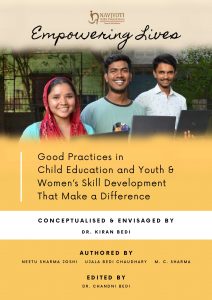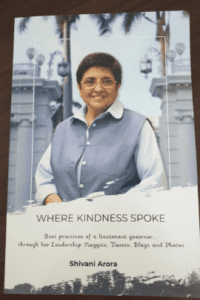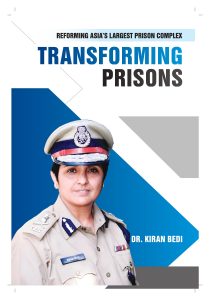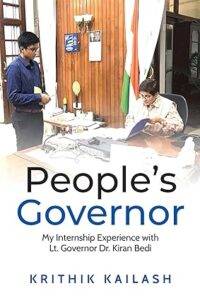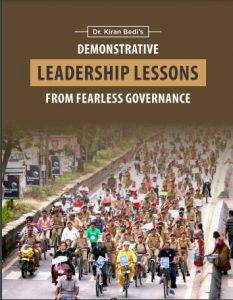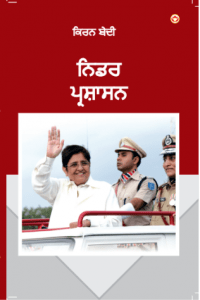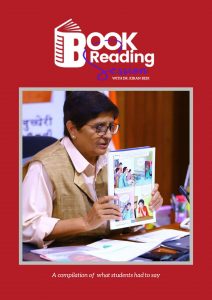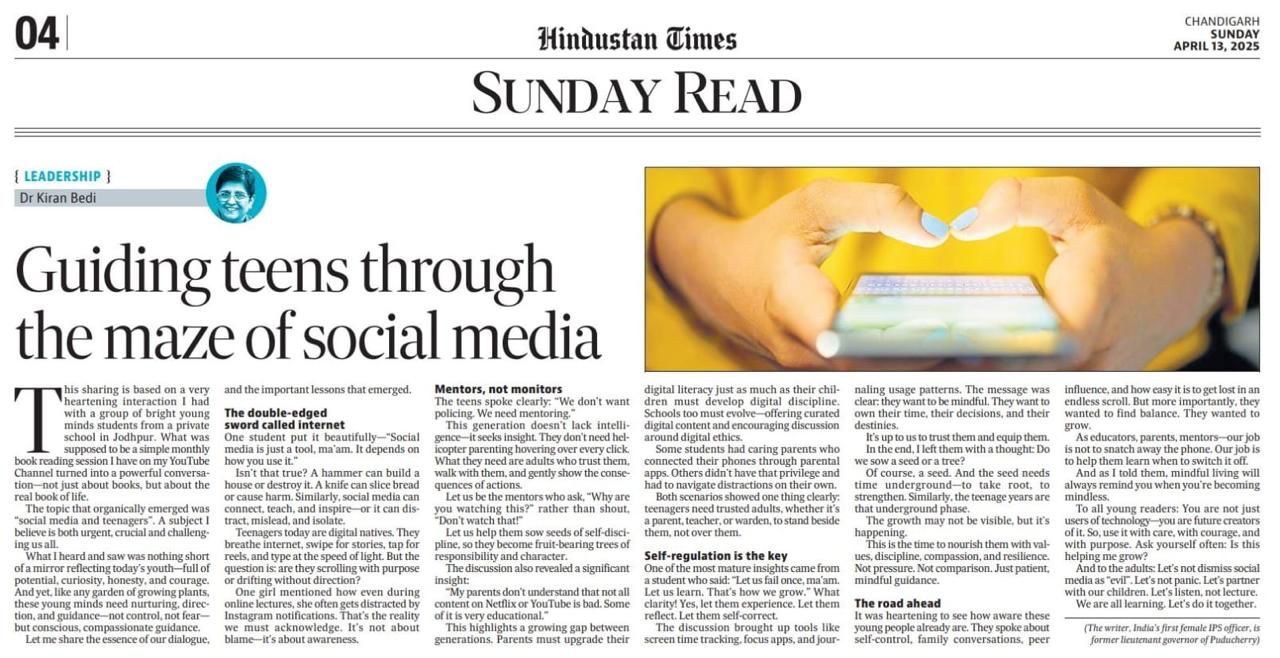
Leadership | Guiding teens through the maze of social media
This generation doesn’t lack intelligence—it seeks insight; they don’t need helicopter parenting hovering over every click; what they need are adults who trust them, walk with them, and gently show the consequences of actions
This sharing is based on a very heartening interaction I had with a group of bright young minds students from a private school in Jodhpur. What was supposed to be a simple monthly book reading session I have on my YouTube Channel turned into a powerful conversation—not just about books, but about the real book of life.
The topic that organically emerged was “social media and teenagers”. A subject I believe is both urgent, crucial and challenging us all.
What I heard and saw was nothing short of a mirror reflecting today’s youth—full of potential, curiosity, honesty, and courage. And yet, like any garden of growing plants, these young minds need nurturing, direction, and guidance—not control, not fear—but conscious, compassionate guidance.
Let me share the essence of our dialogue, and the important lessons that emerged.
The double-edged sword called internet
One student put it beautifully—“Social media is just a tool, ma’am. It depends on how you use it.” Isn’t that true? A hammer can build a house or destroy it. A knife can slice bread or cause harm. Similarly, social media can connect, teach, and inspire—or it can distract, mislead, and isolate.
Teenagers today are digital natives. They breathe internet, swipe for stories, tap for reels, and type at the speed of light. But the question is: are they scrolling with purpose or drifting without direction?
One girl mentioned how even during online lectures, she often gets distracted by Instagram notifications. That’s the reality we must acknowledge. It’s not about blame—it’s about awareness.
The teens spoke clearly: “We don’t want policing. We need mentoring.”
This generation doesn’t lack intelligence—it seeks insight. They don’t need helicopter parenting hovering over every click. What they need are adults who trust them, walk with them, and gently show the consequences of actions.
Let us be the mentors who ask, “Why are you watching this?” rather than shout, “Don’t watch that!”
Let us help them sow seeds of self-discipline, so they become fruit-bearing trees of responsibility and character.
The discussion also revealed a significant insight:
“My parents don’t understand that not all content on Netflix or YouTube is bad. Some of it is very educational.”
This highlights a growing gap between generations. Parents must upgrade their digital literacy just as much as their children must develop digital discipline. Schools too must evolve—offering curated digital content and encouraging discussion around digital ethics.
Some students had caring parents who connected their phones through parental apps. Others didn’t have that privilege and had to navigate distractions on their own.
Both scenarios showed one thing clearly: teenagers need trusted adults, whether it’s a parent, teacher, or warden, to stand beside them, not over them.
Self-regulation is the key
One of the most mature insights came from a student who said: “Let us fail once, ma’am. Let us learn. That’s how we grow.” What clarity! Yes, let them experience. Let them reflect. Let them self-correct.
The discussion brought up tools like screen time tracking, focus apps, and journaling usage patterns. The message was clear: they want to be mindful. They want to own their time, their decisions, and their destinies.
It’s up to us to trust them and equip them.
In the end, I left them with a thought: Do we sow a seed or a tree? Of course, a seed. And the seed needs time underground—to take root, to strengthen. Similarly, the teenage years are that underground phase.
The growth may not be visible, but it’s happening.
This is the time to nourish them with values, discipline, compassion, and resilience. Not pressure. Not comparison. Just patient, mindful guidance.
Awareness, responsibility, balance: The road ahead
It was heartening to see how aware these young people already are. They spoke about self-control, family conversations, peer influence, and how easy it is to get lost in an endless scroll. But more importantly, they wanted to find balance. They wanted to grow.
As educators, parents, mentors—our job is not to snatch away the phone. Our job is to help them learn when to switch it off.
And as I told them, mindful living will always remind you when you’re becoming mindless.
To all young readers: You are not just users of technology—you are future creators of it. So, use it with care, with courage, and with purpose. Ask yourself often: Is this helping me grow?
And to the adults: Let’s not dismiss social media as “evil”. Let’s not panic. Let’s partner with our children. Let’s listen, not lecture.
We are all learning. Let’s do it together.
(The writer, India’s first female IPS officer, is former lieutenant governor of Puducherry)

